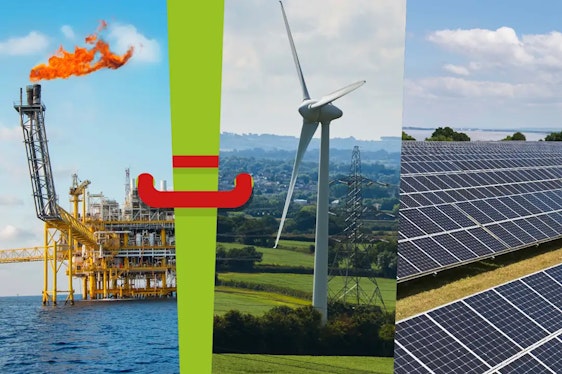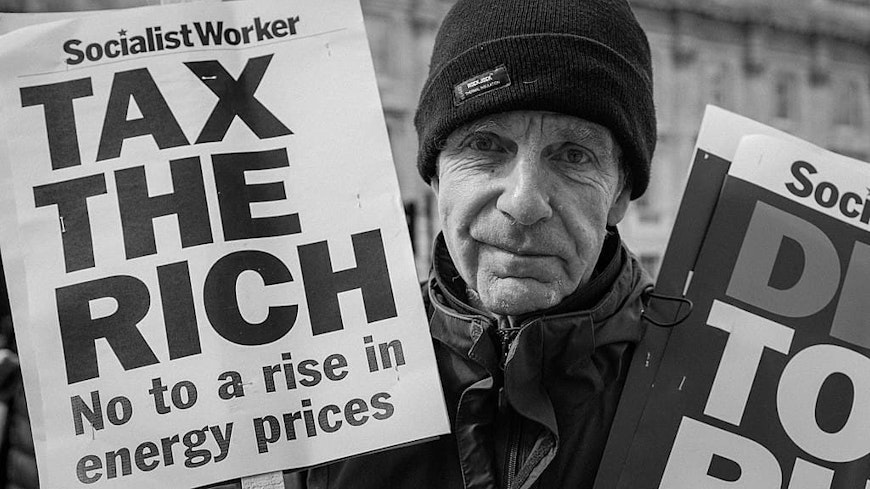
Breaking the Link Between Fossil Fuel and Renewables
High energy bills persist because our market ties green energy prices to fossil gas costs. Breaking this link could finally deliver cheaper, fairer, stable electricity.
While the world lurches from crisis to crisis and economic growth flatlines, the super-rich are laughing. Their fortunes aren’t just growing - they’re accelerating. In 2024 alone, billionaire wealth shot up by $2 trillion - that’s $5.7 billion a day, three times faster than the year before. Meanwhile, global poverty? Stuck where it was in 1990.
But this isn’t just about inequality - it’s about power. Take Elon Musk. Buying Twitter didn’t just get him a social network; it gave him a megaphone to sway US politics. When wealth knows no limits, neither does influence.
Governments aren’t helpless here. They can tackle this head-on - with a wealth tax.
We tax earnings, but what about assets - the cash, stocks, mansions, and yachts that billionaires hoard? A wealth tax targets net worth, not income. The idea is simple: set a threshold, then tax anything above it. Nothing below.
For example, if the UK taxed wealth over £10 million at 2%, only 20,000 people would pay. But it would raise a colossal £24 billion a year. That’s £24 billion for the NHS, for schools, for the green transition. And if some billionaire is so desperate to dodge it that they’d rather leave - don’t let the door hit them on the way out.
Wealth taxes come in different shapes. France and Portugal only tax property. Spain and Norway go further, taxing luxury assets, shares, and bank deposits.
The details matter. Take France - when Macron watered down their wealth tax to cover only real estate, revenue collapsed from €5.6 billion in 2017 to €1.8 billion in 2022. He claimed this would encourage the rich to stay and invest. Result? Zero boost to the economy, according to his own economists.
Then there’s Norway. In 2022, they raised their wealth tax on the super-rich. Some billionaires bolted - 82, to be exact. Headlines screamed disaster. But let’s look closer. Those who left accounted for just 10% of the net worth of Norwegian billionaires alone. The country still had over 253,000 millionaires - most of whom stayed put.
The old "tax the rich and they’ll leave" argument? Overblown. Plus, there’s an easy fix - an exit tax. Senator Elizabeth Warren in the US has proposed a 40% tax on anyone trying to dodge a wealth tax by leaving the country.
Yes, Dubai has low taxes. But the rich care about more than money. London offers world-class schools, a buzzing cultural scene, and stable laws. Plus, moving your whole life - kids, social circles, businesses, and, yes, even the family dog - isn’t so easy. Research shows that it's far from a given that increasing taxes on the rich means they'll leave the country.
Professor Caroline Knowles interviewed 60 super-wealthy people for her book. Her finding? Tax exiles like Philip Green and Jim Ratcliffe are outliers, not the norm. The rich grumble about taxes - but most stay put.
Set the threshold high - say, at £10 million - and tax anything above it at 2%. That would raise £24 billion a year and hit just 20,000 people.
What could £24 billion do? Rebuild the NHS. Fund the green transition. Improve schools. Real, lasting public good.
And those who’d rather flounce off to Monaco than contribute to the country that made them rich? Good riddance – and don’t come back.
The British public knows fairness when they see it. In 2023, a YouGov poll showed 78% of Britons backed a 2% wealth tax on assets above £5 million. It wasn’t just Labour voters - 69% of Conservatives agreed.
Even more interesting was a 2024 poll that showed that three in five UK millionaires believed taxes need to rise to pay for national investment. You can probably guess who at least one of those people was… :)
Even in Parliament, support is growing. By 2024, 68% of Labour MPs backed a 2% wealth tax on those with more than £10 million.
Right now, the tax system hits the poorest hardest. VAT, for example, takes a bigger chunk of low incomes because essentials cost everyone the same. Meanwhile, the rich pay lower rates on their investment profits than most people do on their wages.
A wealth tax starts to balance the scales. But it shouldn’t stop there. Equalising income tax and capital gains tax - so work and wealth are taxed the same - would raise another £14 billion a year.
This isn’t about punishing success. It’s about fairness - because extreme wealth isn’t just a number. It’s power. It’s influence. And when it’s hoarded by the few, everyone else pays the price.
A wealth tax is simple, fair, and overwhelmingly popular. It’s time for those who have the most to pay their share.
Let’s get on with it… :)
High energy bills persist because our market ties green energy prices to fossil gas costs. Breaking this link could finally deliver cheaper, fairer, stable electricity.
Sizewell C is an overpriced, delayed, and risky nuclear project we don’t need. Renewables are faster, cheaper, and safer—yet households will pay billions for Sizewell before it even generates electricity.
Salmon farming is a toxic, unsustainable mess—polluting oceans, killing wild fish, and fueling disease. It’s time to shut it down before it wipes out marine ecosystems for good.
Forest Green Rovers is the world’s greenest football club - powered by clean energy, serving vegan food, and tackling transport emissions. Now, we’re building Eco Park, a stadium that will set new sustainability standards.



